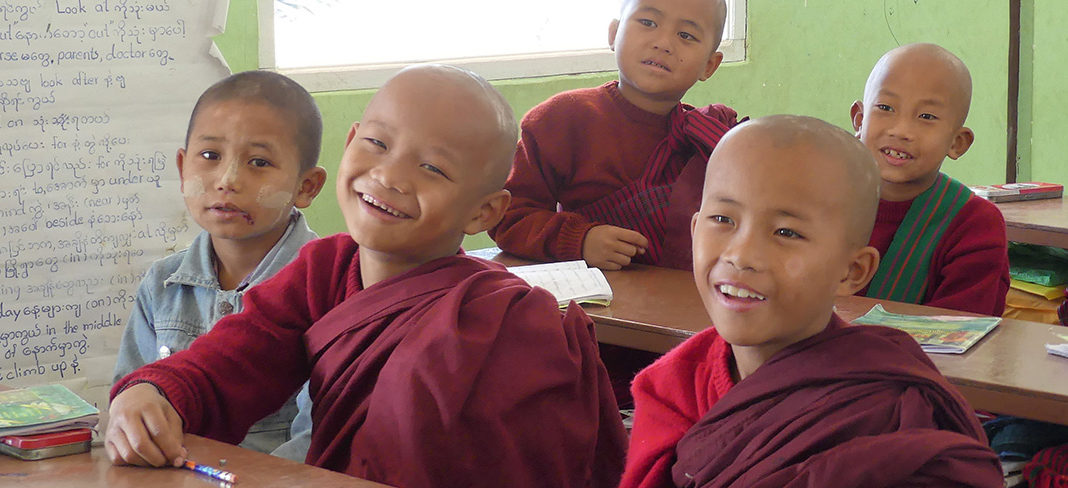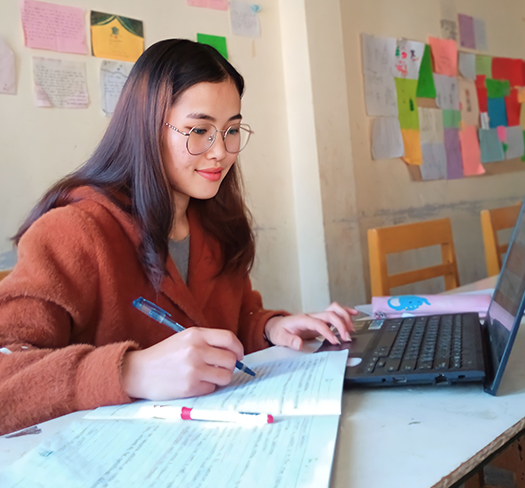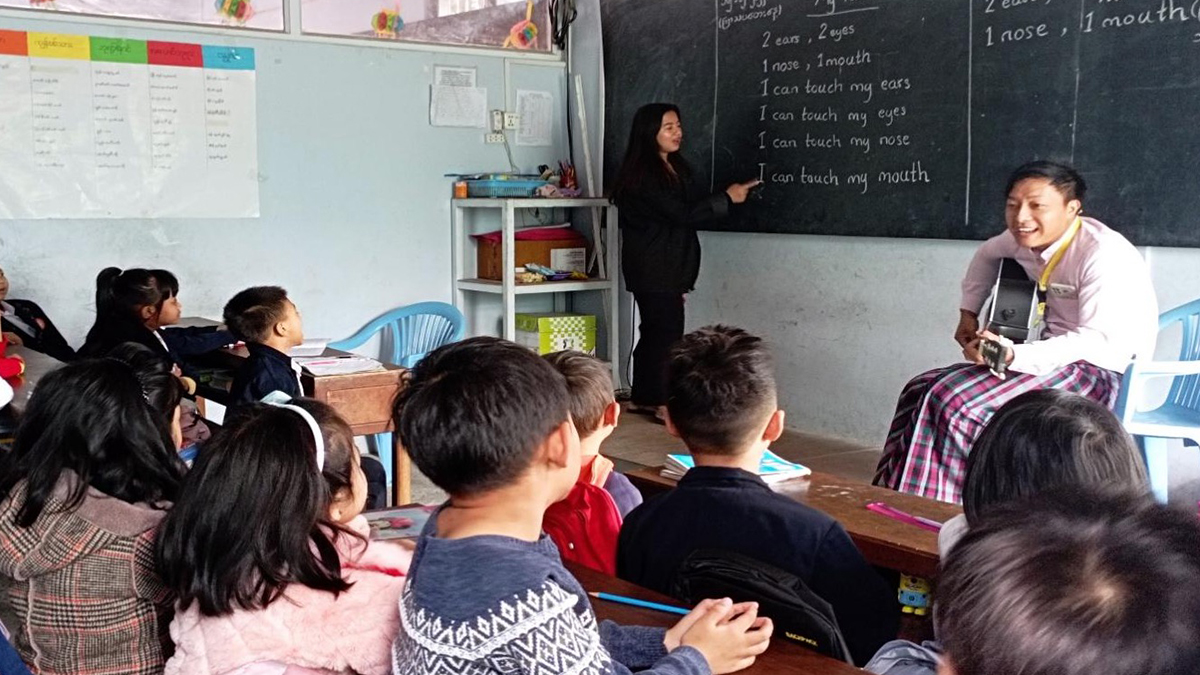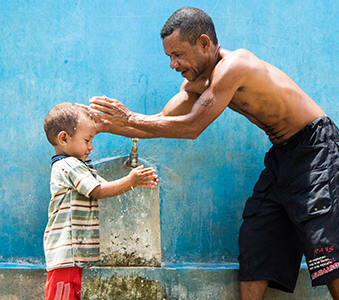Located in central Myanmar, St Aloysius Gonzaga (SAG) Institute is unifying communities and fostering opportunities through education that bridges ethnicity, faith and generations.
Myanmar has been enveloped in war, civil unrest, deep-rooted ethnic tension, oppression and poverty for decades. Even though the country had a short time with a democratic government in this Century, the long period of oppression left a legacy of entrenched, widespread poverty, displacement, and under-resourced healthcare and education.
Since the military coup in 2021, Myanmar has been in a state of humanitarian crisis. In April 2024, the military junta commenced compulsory conscription for all young men (18-35) and young women (18-27), triggering new levels of turmoil as young men and women attempt to flee the country.
Now, over one third of Myanmar’s population is living in extreme need. More than 3 million have been forced to flee their homes, while access to basics like education, healthcare and employment are severely limited.

For over two decades, our local partners have accompanied Myanmar’s youth to navigate paths beyond the crossroads; opening up the doors to opportunities, transforming their futures and reaching out to enable others to do the same.
With support from our Jesuit Mission Australia family, our local partner runs St Aloysius Gonzaga Institute of Higher Studies (SAG) in Taunggyi, Shan State – reaching and empowering more than 1,300 students every year.
About the program
SAG is located in central Myanmar, and embraces students across many of the country’s ethnically diverse states, including Kayah and Karen. Students are supported to study English, teaching, humanities, social work and leadership – greatly forming and empowering the country’s future leaders.
Many students are supported with scholarships, and those from other States are provided living assistance (food and accommodation). In partnership with international universities and with recognition from Myanmar education authorities, this integrated program offers graduates internationally-recognised qualifications.
“The determination of the young people of Myanmar to build their country is inspiring, and I see it as an opportunity.”
Fr Paul Horan SJ, Australian Jesuit who lived in Myanmar for decades
Exemplifying Ignatian values, students in the integrated program are provided with opportunities to serve in neighbouring communities. And in the third year of studies, students develop a deeper service partnership by teaching English once a week to the eager and active children who live in local Monastic communities.
With support from Jesuit Mission Australia, a major building expansion was completed in 2022, and the enrolment numbers have continued to grow to over 1,300 students. The school also offers a Young Learners’ Programs for children, a Communicative English Learners Program for adults and teacher training that empowered young people to educate others in their community;
Graduates are armed with the knowledge, skills and confidence to be competent leaders in their community. And they are formed with the self-esteem, compassion, conscience and cross-cultural understanding and experience that will empower them to transform their community’s future.
Seng Ra’s Story
22-year-old scholarship student, Seng Ra is one example of an inspiring young person your support has helped.

“It has always been my dream to study. In the future I want to become a teacher and share my knowledge and experiences with my community.”
Seng Ra
Before beginning at St Aloysius Gonzaga Institute (SAG), Seng Ra was a shy teenager, unable to speak English or confidently express herself. Now she is just one of the many young people who will go on to create real and meaningful change in Myanmar – starting in the camps for Internally Displaced People, where Seng Ra’s family lives.
The school aims to transform Myanmar society by building the capacity of young women and men, especially those from poor and marginalised communities.
“With this program I can live in a safe place,” says Seng Ra. “I can eat well and I can study well. I don’t need to worry about anything. This program is very important to me.”
Read more about the escalating crisis in Myanmar and Jesuit Mission Australia’s emergency response.


